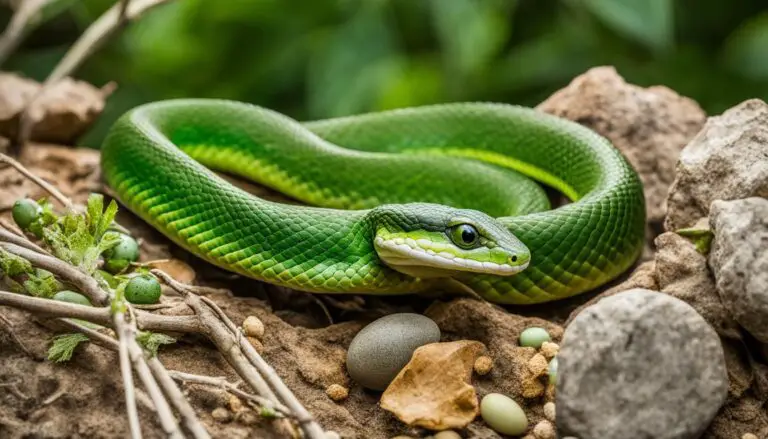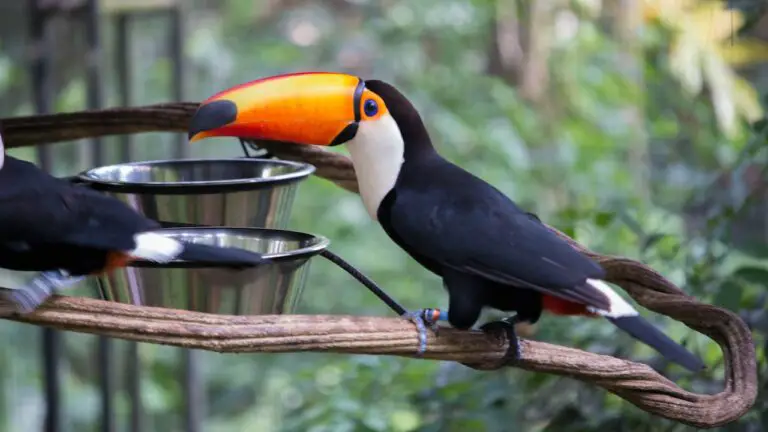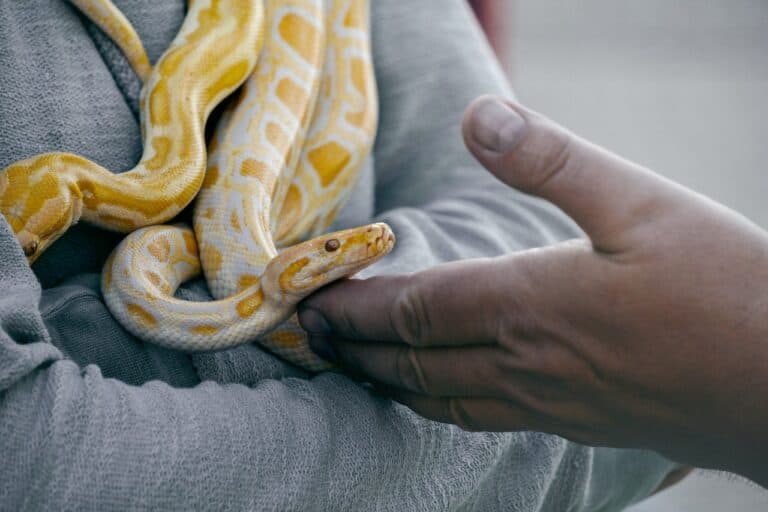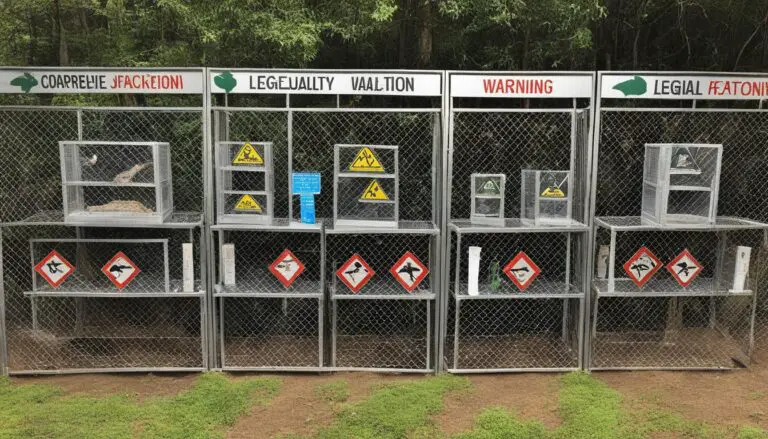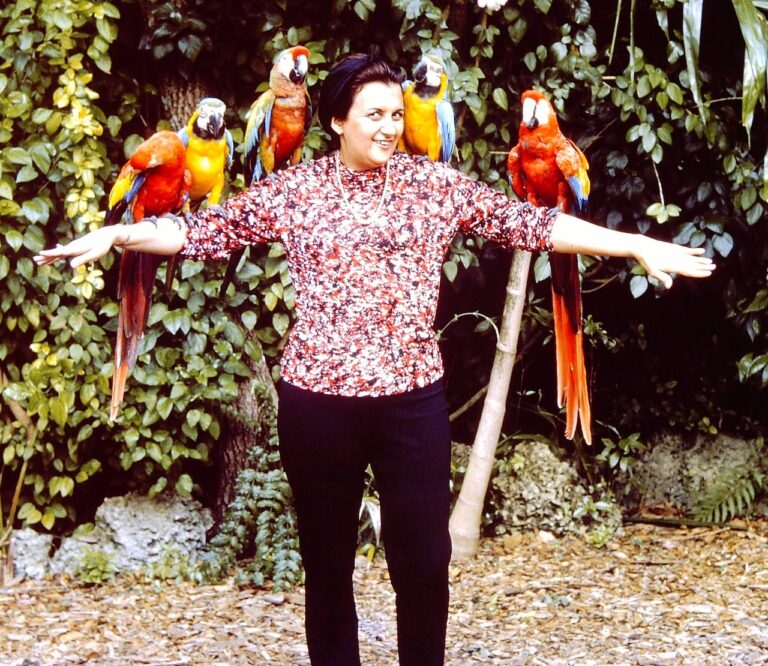Aquatic Exotic Pet Care Tips: Essential Guide [+ Common Issues]
Aquatic exotic pets bring a unique and mesmerizing element to our lives.
From colorful fish to fascinating aquatic reptiles, these pets require special care to thrive in their aquatic environments.
In this article, we will explore essential care tips for aquatic exotic pets, ensuring their health and well-being.
Key Takeaways:
- Research specific needs of your aquatic pet species for proper care.
- Create a suitable habitat with appropriate tank size and hiding spots.
- Maintain water quality through testing and partial water changes.
- Provide a balanced diet based on nutritional requirements.
- Regulate water temperature and lighting for optimal conditions.
- Enrich the environment with decorations and interactive toys.
- Monitor pet health and seek veterinary care when necessary.
- Handle aquatic pets with care and practice good hygiene.
- Be aware of common challenges and seek advice from experts.
- Prioritize the well-being of your aquatic pets.
Understanding the Needs of Aquatic Exotic Pets
Aquatic exotic pets encompass a wide range of species, including fish, turtles, frogs, and invertebrates.
Researching and understanding the specific requirements of the species you intend to keep is crucial.
Different aquatic pets have varying needs concerning habitat, diet, water quality, and temperature.
- Research the specific requirements of your aquatic pet species, including their natural habitat and behaviors.
- Learn about their preferred water conditions, feeding habits, and compatibility with other species.
Fish, for example, come in various types such as freshwater fish and saltwater fish.
Each type has different temperature requirements, dietary preferences, and social behaviors.
Turtles may require a larger tank or pond with basking areas, while frogs may need a semi-aquatic setup with both land and water spaces.
Invertebrates like shrimp and snails have specific water parameters that need to be maintained.
By understanding the needs of your aquatic pet, you can provide a suitable environment for their well-being.
Providing a Suitable Habitat
To ensure the well-being of your aquatic exotic pets, it’s vital to create a suitable habitat that mimics their natural environment.
Consider the size of the tank or enclosure, appropriate water depth, and the inclusion of hiding spots and structures for exploration.
Research the specific requirements of your pet to provide the ideal living space.
- Determine the appropriate tank size based on the adult size of your pet. Providing enough swimming space and territory for your aquatic pets is essential.
- Create a varied environment with plants, rocks, and other decorations to provide hiding places and territories. Live plants not only add beauty to the tank but also serve as natural filtration and oxygenation agents.
- Research the specific substrate and water depth preferences for your pet species. Some species may require sandy bottoms, while others prefer gravel or bare bottoms.
- Include appropriate filtration systems to maintain water quality. Depending on the size of the tank and the number of inhabitants, choose a filtration system that can handle the bio-load and provide adequate water circulation.
Maintaining Water Quality
Water quality is paramount for the health of aquatic pets.
Regularly test the water parameters such as pH, ammonia, nitrate, and temperature to ensure they are within the acceptable range for your specific species.
Establish a regular maintenance routine that includes partial water changes and filtration system upkeep.
- Test the water parameters regularly using test kits to monitor pH, ammonia, nitrate, and temperature. This will help you identify any imbalances or issues that may affect the health of your aquatic pets.
- Conduct partial water changes (10-20%) every 1-2 weeks to remove pollutants and maintain water quality. This helps to dilute accumulated toxins and replenish essential minerals.
- Clean the aquarium filter according to the manufacturer’s instructions to ensure proper filtration. Regular filter maintenance prevents clogging and keeps the water clean and clear.
- Consider using water conditioners and beneficial bacteria supplements to neutralize harmful chemicals, remove chlorine, and establish a healthy bacterial colony in the tank.
Nutrition and Feeding Requirements
Each aquatic exotic pet has unique dietary needs.
Some may require live or frozen prey, while others thrive on commercially available aquatic pellets or flakes.
Research the specific nutritional requirements of your pet and ensure a balanced and varied diet to promote optimal health and growth.
- Research the natural diet of your pet species and replicate it as closely as possible. Some species are omnivores, while others are herbivores or carnivores.
- Offer a variety of foods, including live or frozen prey, pellets, flakes, and fresh vegetables. This ensures that your pets receive a wide range of nutrients.
- Feed your pet in appropriate quantities and avoid overfeeding, as it can lead to obesity and health issues. Monitor their feeding habits and adjust the portion sizes accordingly.
- Consider using vitamin and mineral supplements recommended for your specific pet species. These supplements help ensure that your pets receive all the necessary nutrients for their well-being.
Temperature and Lighting Considerations
Maintaining the correct temperature and lighting conditions is crucial for aquatic pets’ well-being.
Install an appropriate heater and thermometer to regulate the water temperature accurately.
Additionally, provide the necessary lighting, including full-spectrum bulbs, to simulate natural day and night cycles.
- Use a reliable aquarium heater and thermometer to maintain the water temperature within the optimal range for your pet species. Some species require a specific temperature range, while others can tolerate a broader range.
- Install a suitable lighting system to provide a natural light cycle, including periods of darkness. This helps regulate the pets’ biological processes and supports their natural behaviors.
- Adjust the temperature and lighting based on the specific requirements of your pet species. Research the ideal temperature range and lighting duration to promote their overall health and well-being.
Creating Enrichment and Stimulation
Aquatic pets, despite their underwater habitats, still benefit from mental and physical stimulation.
Incorporate suitable decorations, plants, and interactive toys to create an engaging environment.
For example, turtles may enjoy basking platforms, while fish may appreciate the addition of caves or tunnels.
- Provide hiding spots, caves, and tunnels to offer shelter and security to your aquatic pets. These spaces allow them to retreat when they feel stressed or threatened.
- Include live or artificial plants to create a natural-looking environment. Plants not only add visual appeal but also provide additional hiding places and contribute to the oxygenation of the water.
- Add toys and objects that encourage exploration and interaction. Floating toys, mirrors, and floating food dispensers can stimulate your pets and provide mental stimulation.
- Rotate and change the environment periodically to prevent boredom. Rearranging decorations or introducing new elements keeps the environment fresh and exciting for your aquatic pets.
Health Monitoring and Veterinary Care
Regular health monitoring is essential for aquatic exotic pets.
Keep an eye out for signs of illness, such as changes in behavior, appetite, or physical appearance.
Establish a relationship with a qualified veterinarian experienced in aquatic pets to ensure proper medical care and prompt treatment if needed.
- Observe your pet daily for any changes in behavior, appetite, or physical appearance. Sudden changes may indicate underlying health issues.
- Look for signs of disease or infection, such as lethargy, loss of appetite, abnormal swimming patterns, or skin lesions. If you notice any concerning symptoms, consult a veterinarian experienced in aquatic pet care.
- Schedule regular check-ups with a veterinarian to assess the overall health of your aquatic pets. These visits allow for early detection of potential problems and provide an opportunity to discuss any concerns or questions you may have.
- Seek professional advice if you notice any concerning symptoms or abnormalities. Early intervention and treatment can significantly improve the chances of a successful recovery.
Handling and Interaction Guidelines
While some aquatic pets may tolerate handling, it’s essential to exercise caution and handle them only when necessary.
Avoid excessive handling, which can cause stress and injury.
Research appropriate handling techniques for your specific pet, and always wash your hands thoroughly before and after any contact.
- Learn proper handling techniques for your pet species to minimize stress and ensure your safety and the pet’s well-being. Some aquatic pets may be more delicate or prone to injury, requiring gentle handling methods.
- Avoid excessive handling, as it can cause stress and may result in injury to your pet. Remember that aquatic pets are best observed in their natural habitat and may not require regular handling.
- Wash your hands thoroughly before and after handling your aquatic pet to prevent the spread of bacteria or diseases. This practice promotes both your health and the health of your pet.
Common Challenges and Troubleshooting
Owning aquatic exotic pets can present various challenges.
Some common issues include water quality imbalances, tank aggression, and diseases.
Educate yourself about potential challenges specific to your pet species and seek advice from experienced hobbyists or professionals to address any problems that may arise.
- Research common challenges associated with your specific pet species. Understanding these challenges can help you be proactive in preventing or addressing them.
- Join online forums or local hobbyist groups to connect with experienced owners and seek advice. Fellow enthusiasts can provide valuable insights and suggestions based on their own experiences.
- Consult a veterinarian if you encounter any health issues or behavioral problems with your aquatic pet. A qualified professional can provide accurate diagnoses and recommend appropriate treatments.
Conclusion
Caring for aquatic exotic pets requires knowledge, dedication, and a commitment to their well-being.
By understanding their specific needs, providing a suitable habitat, maintaining water quality, offering proper nutrition, and engaging them with enrichment, you can create a thriving environment for your aquatic pets.
Remember, each species has unique requirements, so research and tailor your care accordingly.
Regular observation, health monitoring, and veterinary care are crucial to ensuring the long-term health and happiness of your aquatic pets.
FAQs
How often should I clean the aquarium?
Regular maintenance is crucial.
Perform partial water changes every 1-2 weeks and clean the aquarium glass and decorations as needed.
Can I keep different species of aquatic pets together?
Not all species can coexist peacefully.
Research compatibility before housing different species together to avoid aggression or predation.
Do aquatic pets require any special lighting?
Yes, most aquatic pets require lighting that simulates natural day and night cycles.
Invest in full-spectrum bulbs suitable for their needs.
Can I feed my aquatic pet only flakes or pellets?
While flakes and pellets are convenient, it’s essential to provide a varied diet that includes live or frozen prey to meet their nutritional requirements.
How can I tell if my aquatic pet is sick?
Signs of illness include changes in behavior, appetite, or physical appearance.
If you notice any abnormalities, consult a veterinarian experienced in aquatic pets.
Peter Stones is the founder of Exotic Pets Place, the leading online resource for exotic pet care information.
With over 10 years of hands-on exotic pet ownership experience, he is deeply passionate about sharing his expertise to help others properly care for their unusual pets.
When he's not writing extensively researched articles or connecting with fellow exotic pet enthusiasts worldwide, you can find Peter at home tending to his own beloved menagerie of exotic animals.

![Aquatic Exotic Pet Care Tips Essential Guide [+ Common Issues], two people caring for fish](https://exoticpetsplace.com/wp-content/uploads/2023/06/Aquatic-Exotic-Pet-Care-Tips-Essential-Guide-Common-Issues-two-people-caring-for-fish.jpg)
